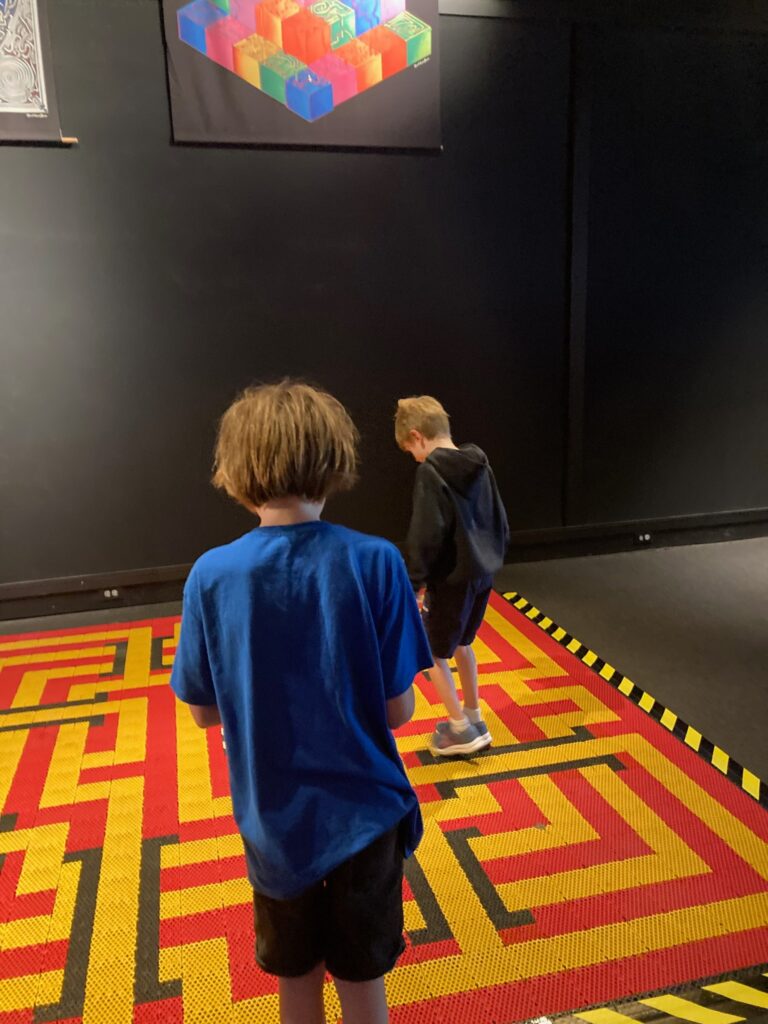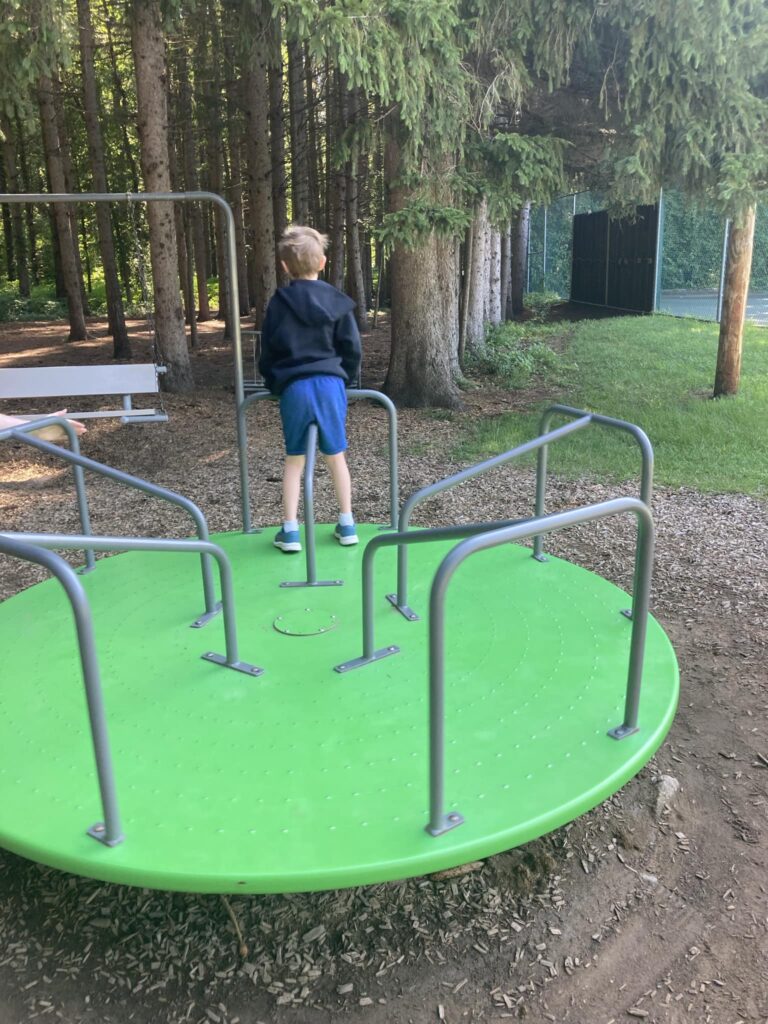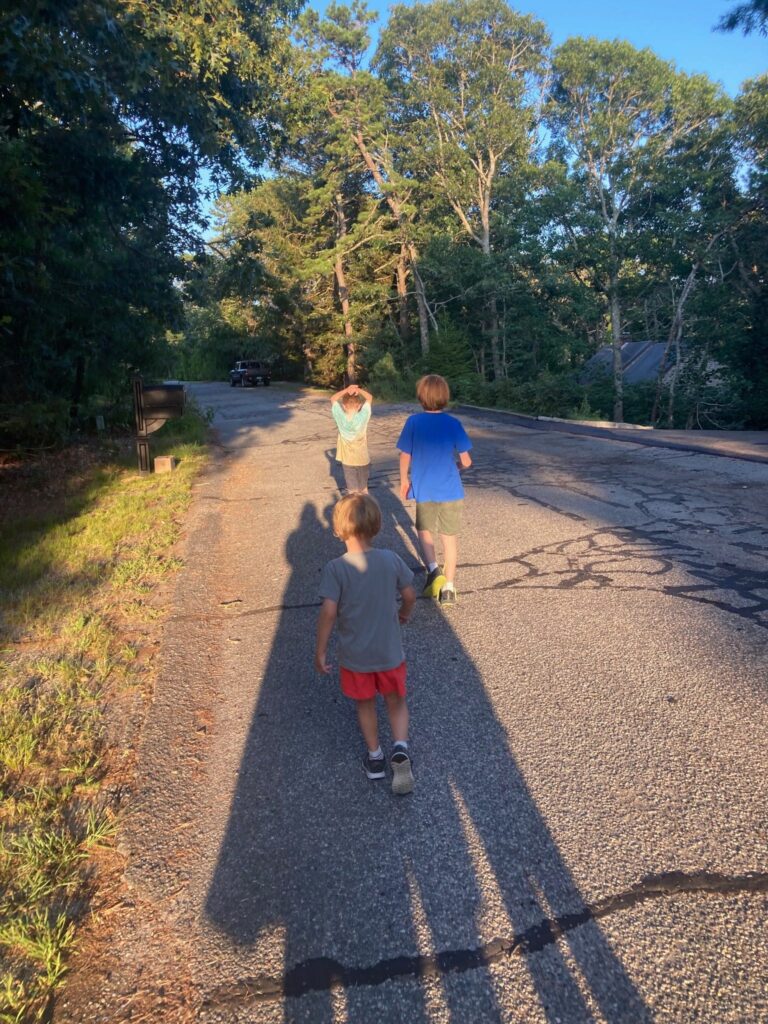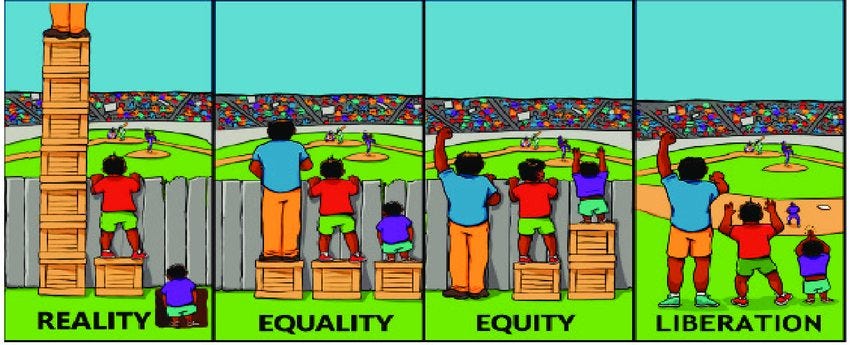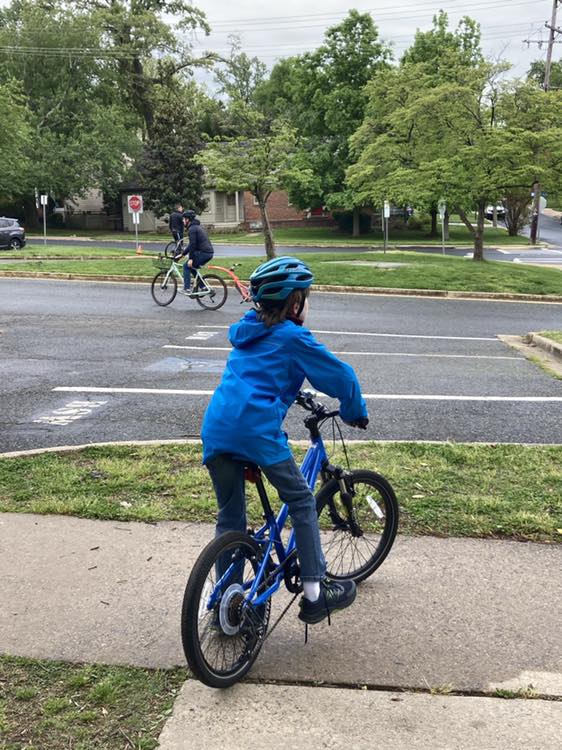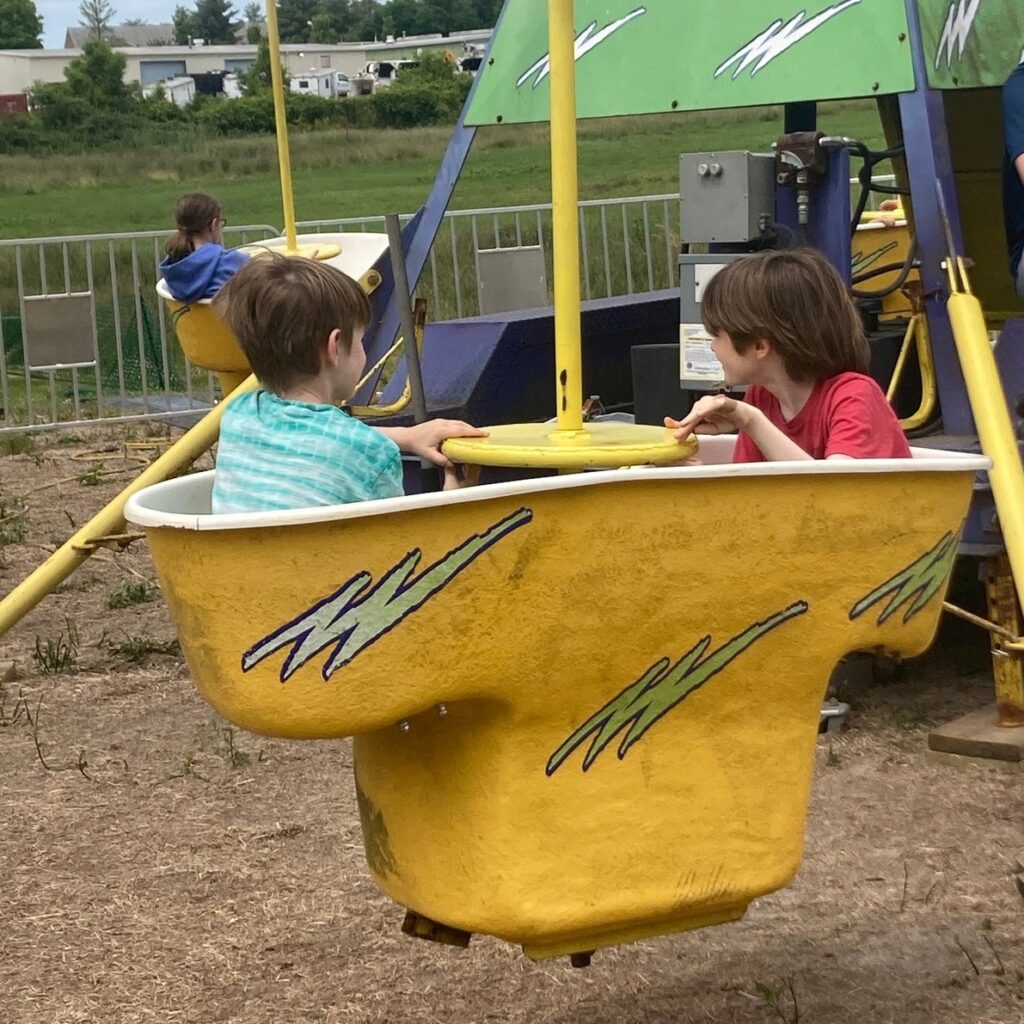
Skittering across the mud, a tiny hermit crab lunged at invisible-to-me prey. A few inches away, a crab with its shell covered in algae started digging. Caddisfly tubes made of rocks and shell bits poked up all around.
As I was observing this tiny tableau, I felt something on my foot. Something very much alive, moving, and animal-like.
“Ah, ah, ah!” I yelped, reaching down and trying to get it off. I spotted a long translucent creature and flicked it, only to have it hop up and land elsewhere on my leg. I finally got it off, much to my relief. As it turned out, it was an itty bitty shrimp and the shallow water extending to the horizon was full of them. I ended up with them in my shoes a couple more times that afternoon.
Despite my panic about having shrimp in my shoes, the low tide flats of Breakwater Beach in Cape Cod offered an awesome opportunity to look at nature up-close – really close. It was easy to miss the vast, wriggling diversity of life in the shallow water and sand unless you looked carefully. Once you did start looking, it was everywhere.
Continue reading